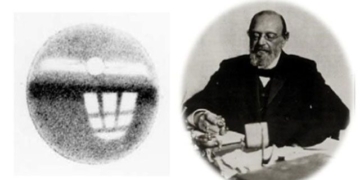A recent research report has been published to explain a mystery within the publishing industry, editorial management, and among readers: “When does news become old news?“
The lifespan … 36 hours
The research findings indicate that the average lifespan of an online news article is 36 hours. This means that after 36 hours of being published online, a news article is considered old and no longer new.
This is indeed a surprising result, as traditional beliefs about how people use the Internet suggest that this time frame is much shorter.
 |
RSS is becoming a new way to consume news. |
To be more precise, the report titled “The Dynamics of Information Access on the Web” states that 36 hours is the time required for half of the total readership of an online news article to access and read it. For instance, if an article attracts 30,000 readers, then within the first 36 hours of being online, 15,000 people will have read it.
Albert-László Barabási, a physicist at the University of Notre Dame and the leader of the research team, believes this will be good news for journalists in the era of instant news.
Editors and online news editors have also confirmed this result based on their daily experiences.
Is being prominent really better?
Jennifer Sizemore, the editor-in-chief of the online portal MSNBC.com, asserts that “The way readers seek out what interests them is quite notable. Clearly, prominent news attracts a large number of readers. However, sometimes articles that fall near the bottom of the page are not inferior in terms of readership. There are characteristics that strongly attract readers over a week or more. Even articles that are no longer highlighted on the homepage still draw a significant number of viewers.”
Neil F. Budde, the editor-in-chief of Yahoo News, stated that the website needs to balance various needs and preferences of readers. Regular visitors often feel frustrated with old news, while occasional visitors may not be aware of recent happenings. Editors must know how to balance essential news coverage.
Budde mentioned that the traffic to Yahoo News is so large that conducting a specific study similar to Professor Barabási’s is quite challenging. However, Budde has actual figures showing that the readership of articles on the homepage decreases over time.
New news is not always new?
Professor Barabási indicated that one of the focuses of his research is to affirm that Internet users do not necessarily read new news. In fact, they may not read certain articles for several days. Instead, they read based on immediate interests. An article might be old for some readers, but new for others who have just discovered and are reading it.
This model demonstrates that readership for certain articles does not decline after a specific period.
There is a need for policies to promote online news—even when they have lost their “news value”—which is one of the most important recommendations in Professor Barabási’s research. Meanwhile, search engines do not inform readers about what they have missed.
Hoàng Dũng


















































